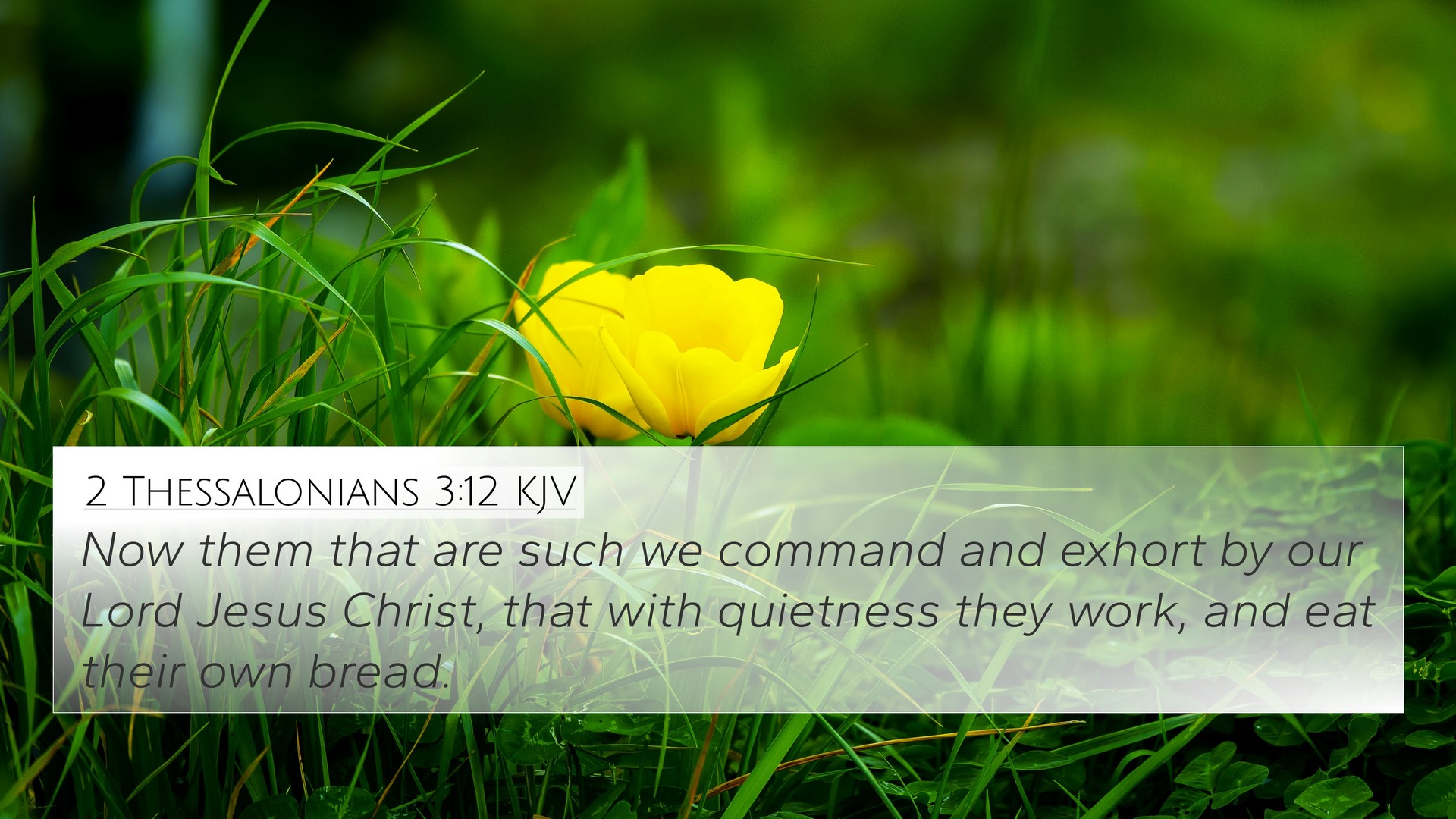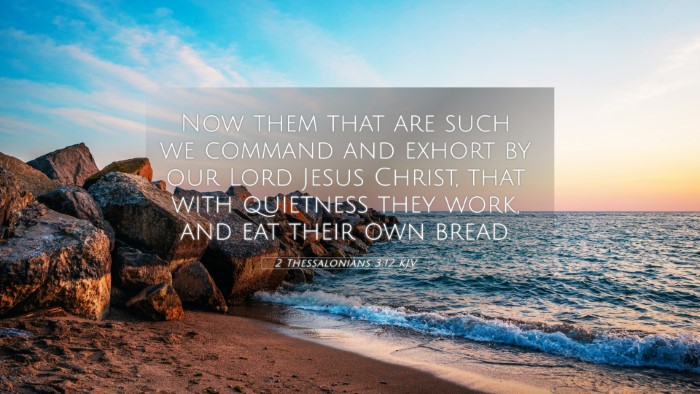Understanding 2 Thessalonians 3:12
2 Thessalonians 3:12 states, "Now those who are such we command and exhort through our Lord Jesus Christ, that they work in quietness and eat their own bread."
This verse addresses issues within the Thessalonian church regarding idleness and encourages a life of diligence and personal responsibility.
Summary of Key Themes
- Encouragement to Work: Paul emphasizes the importance of working to support oneself, insinuating that idleness is unproductive.
- Instruction in Quietness: The phrase "work in quietness" suggests a demeanor of humility and focus on one’s tasks without disturbing others.
- A Call for Accountability: This command is not just personal but communal, aiming to maintain order within the church body.
Commentary Insights
Matthew Henry remarks that Paul is giving a clear directive to those who are neglecting their responsibilities. He highlights that work is fundamentally an expectation of the Christian life, serving both personal sustenance and the wellbeing of the community.
Albert Barnes elaborates on "eating their own bread", indicating the necessity for believers to contribute to their own livelihoods rather than relying on others or the church. This promotes integrity and a sense of purpose.
Adam Clarke notes that the exhortation to work implies a broader theological undercurrent; it demonstrates that faith must be coupled with action. Clarke underscores the potential for disorder if some members became overly reliant on others for their sustenance.
Bible Verse Cross-References
- 1 Thessalonians 4:11-12: "That you also aspire to lead a quiet life, to mind your own business, and to work with your own hands, as we commanded you." This passage reinforces the call to personal diligence.
- 2 Thessalonians 3:6: "But we command you, brethren, in the name of our Lord Jesus Christ, that you withdraw from every brother who walks disorderly and not according to the tradition which he received from us." This sets a precedent for the authority behind Paul's instructions.
- Proverbs 14:23: "In all labor there is profit, but idle chatter leads only to poverty." This Old Testament wisdom aligns with the principles Paul discusses.
- Colossians 3:23-24: "And whatever you do, do it heartily, as to the Lord and not to men." This echoes the motivational aspect of working for the Lord rather than merely for human approval.
- 1 Timothy 5:8: "But if anyone does not provide for his own, and especially for those of his household, he has denied the faith and is worse than an unbeliever." This enforces the significance of responsibility for one's family.
- Galatians 6:5: "For each one shall bear his own load." This indicates personal responsibility in community settings.
- Romans 12:11: "Not lagging in diligence, fervent in spirit, serving the Lord." This ties back to maintaining enthusiasm and commitment in labor.
Connections Between Bible Verses
The verse in 2 Thessalonians intersects significantly with various scriptural principles found throughout both the Old and New Testaments. For instance, concepts of work ethics are mirrored in Ecclesiastes 9:10, where diligence is encouraged as one experiences life's fleeting nature. Likewise, many of Paul’s epistles reflect on the need for mutual support and the sharing of burdens as seen in Galatians 6:2, hence establishing a relational dynamic within Christian communities.
Conclusion and Reflection
In conclusion, 2 Thessalonians 3:12 serves as a powerful reminder of the necessity for personal responsibility among believers. The insights from public domain commentaries provide depth, revealing that the underlying message is about collective integrity within the faith community. By linking this charge with other scriptures, we glean a fuller understanding of a Christian's role in both work and witness.











